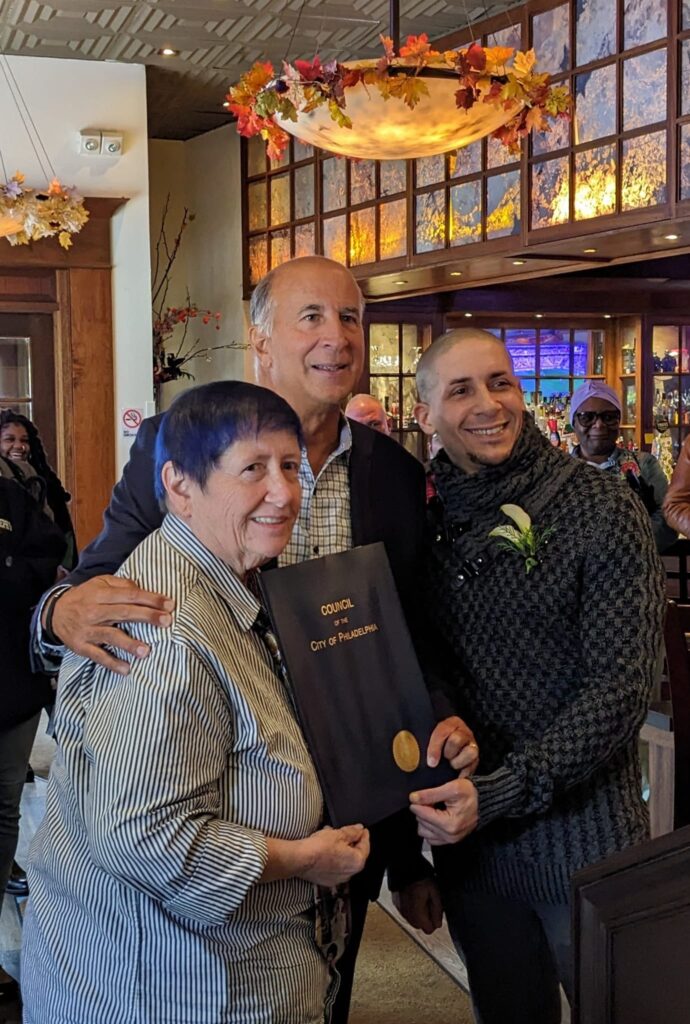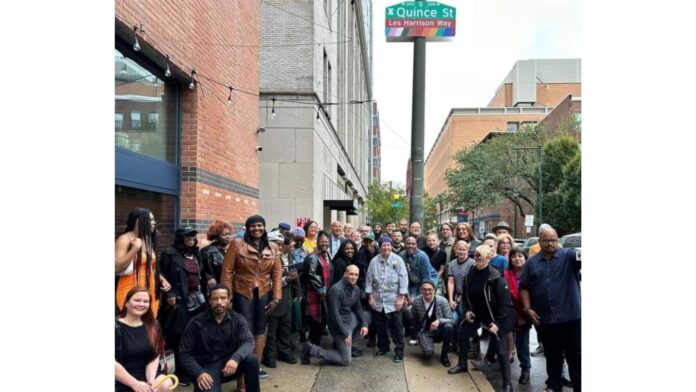Philly has a rich history of drag performance, so it stands to reason that the 200 block of Quince Street in the Gayborhood was recently renamed to Les Harrison Way in loving memory of the legendary, longest-performing drag queen of color, Les Harrison. Harrison passed away in 2020 at the age of 77.
“I know how much history my dad has with the neighborhood and with that street,” said Les Price, Harrison’s son.
The renaming marks the fourth street in the U.S. to be named after a drag queen, and the second to be named after a person of color.
It goes to show “the history of how accepting Philadelphia has been,” said Harrison’s ex-wife Franny Price, Les Price’s mother. Franny Price formerly served as executive director of the disbanded organization Philly Pride Presents and is currently mayor of Folcroft, a suburb of Philadelphia.
Harrison began performing drag in the late 1960s at the Forrest Lounge on Quince Street in Philadelphia, current home of the LGBTQ+ bar Bike Stop. He was the first person of color to perform drag on a “whites only” stage in Philly at the time.
“That’s huge in itself,” Les Price said. “I’m also just humbled not only as a son, but for my city to play a small part in commemorating his legacy.”
The street name change was a collaborative effort between Franny Price, City Councilmember Mark Squilla and Tami Sortman, president of the Washington Square West Civic Association.
A Sept. 23 ceremony to mark the renaming took place not far from the new Les Harrison Way at the Gayborhood bar Knock. Harrison’s family members and friends gathered to memorialize him and the impact he made in Philly and beyond. Local politicians were also in attendance, including Pa. state Rep. Malcolm Kenyatta, Judge Timika Lane and Micah Mahjoubian, chief of staff for state Sen. Sharif Street and friend of Harrison’s.

“This history-making gesture marks the first time a street has been named after a Black Drag Queen in America,” Mahjoubian said in a Facebook comment. “Les was a pioneer in the LGBTQ community and was a part of one of the most beautiful families I know.”
Harrison was best known for impersonating Welsh singer Shirley Bassey, whose hits include the James Bond theme “Diamonds Are Forever,” “Something” and “Never Never Never.” As a Black drag performer, Harrison had to navigate a performance industry rife with racism in his path to achieving success. He lived in different neighborhoods in the city, and at times was unable to get a cab when he traveled to gigs in his drag attire, Les Price said. Harrison would then encounter more hatred when he arrived to perform in predominantly white bars.
In overcoming such deep-seated racism over the years, Harrison broke barriers for many of Philly’s drag queens of color.
“He was a trouper,” Franny Price said. “He still performed. By paying his dues, he got respect. You couldn’t walk anywhere in Center City without someone saying hi to Les, whether it was a manager of the store where he bought his wigs — everybody knew and respected Les.”
Les Price said he thinks that the new street name is important because “if any kid of this generation or the next generation sees that, I hope it gives them an idea that they’re allowed to be as unapologetic and fierce as [Les Harrison] was.”
Even though the Gayborhood has changed over the years and many of its original bars have closed, Les Price said, “I’m just happy that I’ll be able to walk through the neighborhood I grew up in, look up and smile and realize a part of my dad will always be there.”

